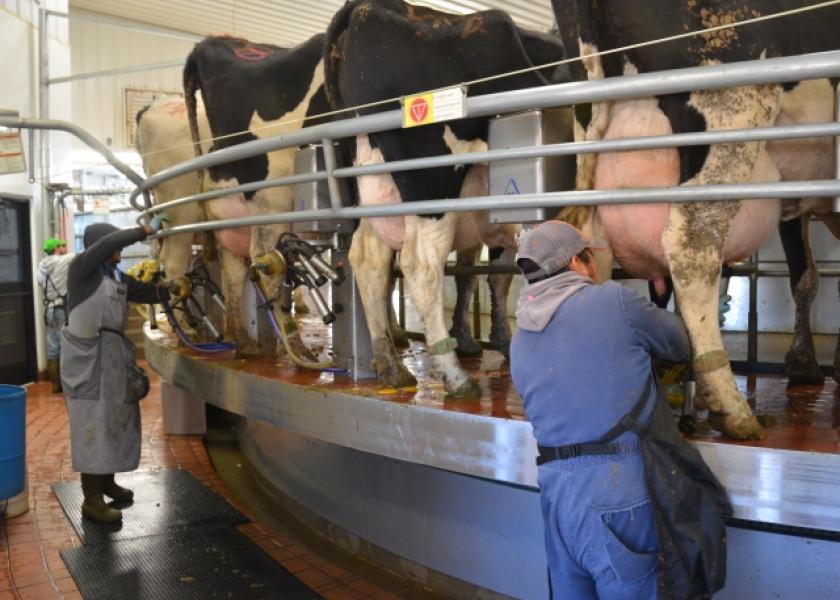Help Create a Destiny

Jesus was just like many other hard-working individuals who work on a farm. He grew up helping on his family’s farm and had spent his entire life around cows which had shaped him into a hard-working and intelligent jack-of-all-trades. He was able to milk, scrape, fix (or jerry rig) almost any piece of equipment on the farm and even found time to help a herd veterinarian chase the occasional escaped calf.
However, the herdsman at Jesus's dairy moved on, leaving him in charge of the one thing on a farm he'd never done before in his life – caring for the immediate health of hundreds of cows.
Mentoring Supports Progress
I remember having a deep conversation with him about his lack of experience in this area of farming and the skills it would require him to use that he didn’t yet possess. I took his concerns to the herd owner and after discussion we agreed that Jesus could do this with the right support.
Over the next year, the herd owner and I encouraged and pushed Jesus to develop his skills. The herd owner was committed to holding the bar at a high level, expecting more and better disease detection and treatment skills every month. I was tasked with teaching common diagnostic and treatment skills, as well as encouraging the individual's progress through the developmental process. Through these combined efforts Jesus was able to slowly, progressively and successfully build a repertoire of skills that allowed him to successfully detect and treat the common diseases in his operation.
What I didn't realize at the time was this was my first conscious, real-world application of a psychological effect called the Pygmalion effect (aka Rosenthal effect). Through the years I'd been on the receiving end of this phenomenon, having had coaches, mentors and parents who had also unknowingly applied this effect on me. These individuals created an environment of high but realistic expectations for my success and supported my progress with resources and opportunities to express myself along the way. However, this was the first time in my young, professional career that I was the one on the empowering end of a relationship.
Create A Climate For Growth
What we didn’t know at the time but realized after reflecting upon our journey with Jesus, was that our management team was able to set Jesus up for success by helping him develop his abilities using the four-step Pygmalion model that Robert Rosenthal describes as the following: setting the climate, crafting input, creating outputs and providing timely and meaningful feedback.
We had started by crafting a climate of growth. Encouraging Jesus to take risks, ask for help and make mistakes, which we corrected together when they occurred. If the actions were below the bar of expectations, we explained why the effort wasn't up to the operation's standards. This was all done using as much supportive and non-blaming language as possible.
Next, we had provided Jesus with loads of input and opportunities to learn. Encouraging him to read articles in multiple dairy publications like Dairy Herd Management, Progressive Dairy and Hoards.
Make The Process Meaningful
Additionally, the herd owner financially supported Jesus's education by paying for me to come and train him in fresh pen work as well as to audit his early diagnoses to provide him peace of mind, additional education and encourage his progress.
We had also given Jesus opportunities to craft his own outputs from his job, making it uniquely meaningful to him. He was able to use his skills in communication to improve the interpersonal interactions on the dairy, raising them to levels never seen before. Additionally, his herd owner encouraged him to share his input learnings and observations at our regular consultant team meetings which gave him the ability to exhibit his newfound competency.
Finally, at each herd program I had spent time in the fresh pen with Jesus. Not so much because things were a mess but to spend time talking with him so as to address his concerns and give him feedback. Sometimes he needed encouragement from me, other times advice and sometimes he just needed an "at-a-boy" to tell him he was on the right path. Regardless of the form, this feedback provided him a critical resource to draw from when seeking motivation to continue his growth.
While our journey as veterinarian and herdsman is not over, it continues to be a rewarding journey for Jesus and me. So, the next time your Jesus asks "How are you, boss/dr./etc?" just remember the power of the Pygmalion effect, and take advantage of the opportunity to set the climate, provide input, listen to their output and ultimately support the individual in front of you!
In Review: How to Create a Pygmalion Effect
1. Set a climate for the team member showing that growth is encouraged and expected.
2. Provide them the resources, time and opportunities to take in new inputs, trainings or information.
3. Encourage their sharing of their meaningful work outputs or learnings with their peers and the management team.
4. Never stop giving them feedback in the form of encouragement, resources and support when they are pursuing the work that is meaningful to them.







